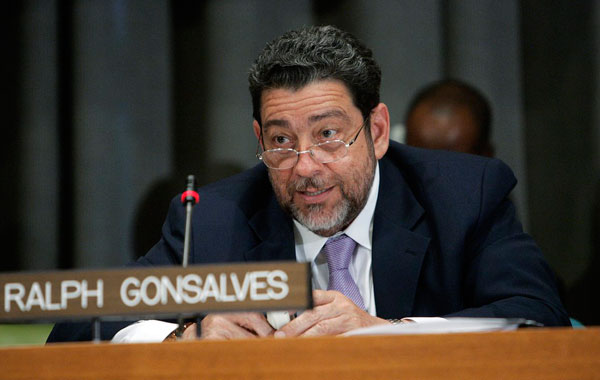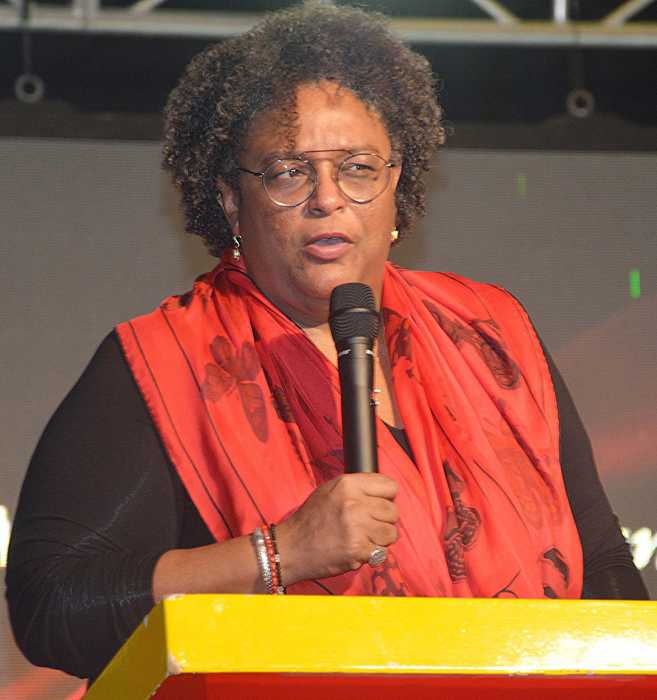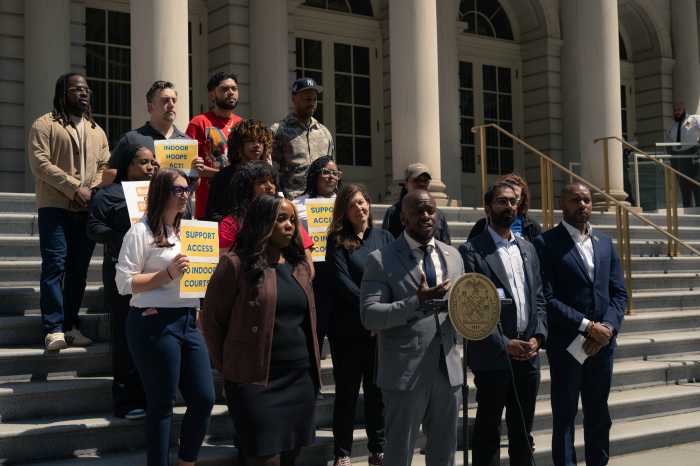Caribbean
International Press Institute executive director will lead a six-party delegation to six Caribbean countries later this month as part of the institute’s regional campaign for the repeal of defamation laws.
The institute will visit Trinidad and Tobago, Guyana, Suriname, Curacao, the Dominican Republic and Antigua and Barbuda.
In a press release, the institute said it would seek to win support from journalists, editors, civil society organizations and government and non-governmental officials for the repeal of criminal defamation and insult laws, as well as discuss protection for journalists in Antigua and Barbuda, Guyana and Suriname.
In Trinidad and Tobago, “the delegation will encourage further progress on efforts to modernize the country’s defamation laws, as well as consolidate partnerships, including training initiatives, with both the Trinidad government and national media houses that began with IPI’s 2012 World Congress in Port of Spain,” the release said.
Antigua
The United States says despite recent improvements as a “significant” offshore center, Antigua and Barbuda “remains susceptible” to money laundering.
In its 2013 International Narcotics Control Strategy Report on money laundering and financial crimes, the U.S. Department of State said that Antigua and Barbuda’s status stems from its offshore financial sector and Internet gaming industry.
“Illicit proceeds from the transshipment of narcotics and from financial crimes occurring in the United States are laundered in Antigua and Barbuda,” the report stated. During the past year, it said the Office of National Drug Control and Money Laundering Policy (ONDCP) in Antigua had “compiled evidence that money laundering related to drug trafficking takes place through local financial institutions.”
According to the State Department, the ONDCP’s analysis shows that “criminals abuse the system and financial institutions in some instances, fail to apply sufficiently rigorous due diligence in relation to transactions that should be seen as questionable.”
The report said the funds involved include Eastern Caribbean dollars “traced to the sale of local property by at least one person US authorities identified as trafficking drugs through Antigua and Barbuda to U.S. territory.”
The report said Antigua and Barbuda receives approximately US$2.8 million annually from license fees and other charges from the industry.
Guyana
Authorities in Guyana say 10 citizens have been selected to form a panel charged with helping improve the South American country’s police force.
National Security Minister Clement Rohee says the panel was created based on recommendations that civilians should administer certain police functions such as project coordination and strategic planning. The selected panel includes former police officers.
The announcement comes amid criticism that the 3,500-strong police force is inefficient, overly bureaucratic and corrupt.
Rohee said Cabinet will review the selections and make a final announcement later this month.
St. Lucia
Officials from the Organization of Eastern Caribbean States (OECS) recently met in St Lucia to examine the issue of credible data from social development programs to further inform policies for reducing or eliminating juvenile delinquency in the sub-region.
The OECS Secretariat’s Juvenile Justice Reform Project, which is being funded by the United States Agency for International Development (USAID), is collaborating with the United Nations Office on Drugs and Crime (UNODC) and UNICEF hosted the four-day workshop which aimed to provide participants with the methodology and tools for measuring the effect of juvenile justice programs.
Project Coordinator of the OECS Juvenile Justice Reform Project Dwight Calixte believes the effective Juvenile Justice Information system can ultimately influence better resource allocation and management and with greater fiscal responsibility member states can create a better environment that may contribute to economic development.
Through a coordinated approach, Calixte said data from the juvenile justice information system will bring all such agencies together to allow them to look at where they have invested, what will be the ultimate outcome of the program that they are undertaking and how far they have reached those targets to help ensure that all juveniles are diverted away from the court system.
St. Vincent
Teenage pregnancy continues to be a major concern for the Ministry of Health, with eight girls between the ages of 11 and 14 years giving birth in 2012, Health Minister Clayton Burgin told Parliament recently.
He said that teenage pregnancy remains high even as the nation recorded a constant decrease in the number of babies dying before birth, prenatal mortality.
“The area that continues to worry my ministry is teenage pregnancy. The teenage pregnancy rate in 2012 remained high, standing at 17.9 percent, with eight girls between eight and ll years giving birth,” Burgin said.
The age of consent in St Vincent and the Grenadines is 16 years and a person having sex with a girl under that age can be charged with one of more several crimes.
Trinidad
Prime Minister Kamla Persad-Bissessar said she was very pleased with the historic legal victory for the state in the unprecedented Section 34 constitutional case.
In a press release, the prime minister said the ruling comprehensively dismissed the various grounds of challenge to the repeal of Section 34.
“As noted by the court, the government moved swiftly to repeal Section 34 and drafted the repeal in a manner that nullified any legitimate expectations and retroactively cleared the way for the defendants to be tried.
“The government has been vindicated by this judgment which highlighted and relied on the quick action taken to repeal Section 34.
“I was particularly pleased with the expeditious manner in which this case was heard and determined as it was obviously in the public interest to have this matter dealt with very quickly,” she said.
Two businessmen, Ishwar Galbaransingh and Steve Ferguson, reportedly to be financiers of the United National Congress (UNC) party (senior coalition partner in the People’s Partnership Government), had challenged the constitutionality of the repeal of Section 34.
They were both charged with a series of criminal offences arising of the Piarco Development Project more than a decade ago. They argued through their constitutional motions that repealing of Section 34 deprived them of an assurance from the State that they could apply to have their cases dismissed, on the basis that they were older than 10 years, before it was revoked by Parliament, to their detriment.
Parliament had passed the Administration of Justice (indictable Proceedings Act) and was proclaimed by President Max Richards on August 31, 2012, which paved the way for persons, charged indictably with certain offences beyond a period of 10 years, to apply to a judge to have them dismissed.
Turks and Caicos
Sixteen Cuban migrants, who were held for illegally entering the Turks and Caicos Islands (TCI) on October 2012 and were released on a court ordered bail, have absconded and made their way to Florida.
The group reportedly left the TCI by speedboat and island-hopped through The Bahamas to make the approximately 650-mile trip to Miami. Among the group was the mother of U.S. baseball professional Yoenis Cepedes.
The controversial U.S. “wet foot, dry foot” rule favors Cubans who, while illegal migrants, actually arrive on U.S. soil and are then classified as political refugees escaping from a communist country. However, if they are intercepted at sea, they are returned to Cuba.
The ruling party in the TCI, the Progressive National Party (PNP), has a poor record in dealing with illegal migrants. During a former PNP administration, some Haitian detainees died in custody from dehydration. The mistreatment of Haitian refugees in the TCI became a source of local and regional controversy recently when immigration minister Hon-Hue Gardiner called on residents to help track down illegal Haitian migrants and make their lives “unbearable.”
Gardiner later tried to defuse his statement by claiming he was not referring to Haitians but to all illegal migrants.
St. Lucia
St Lucia is seeking to strengthen its existing diplomatic relations with Africa, according to Dr. Vaughn Lewis, the special adviser in the Ministry of Foreign Affairs in the Dr. Kenny Anthony administration.
“We believe that we need to re-engage with the African states many of which have and continue to emerge as important economic entities and we need in that context to engage them to assist with our own development,” he said.
Speaking during a television program recently, Lewis a former prime minister said: “We have lost influence in persuading Britain and the European Union as to what we want and it is those emerging African countries that will have the influence.”
He said the need to deepen relations with the world’s second-largest and second-most populous continent is in keeping with a new policy direction to review and realign the country’s foreign relations.
Dr. Lewis said while St Lucia may not be able to rely on aid from Africa, the island can engage the continent to stimulate investment and to lobby on St. Lucia’s behalf in international circles.
Trinidad
Trinidad and Tobago will sign the Arms Trade Treaty when it opens for signature at the United Nations Headquarters in New York, June 3, according to Foreign Affairs Minister Winston Dookeran.
On April 2, Trinidad and Tobago was among the 155 UN Member States who voted in favor of the treaty “which has as its central objective, the establishment of the highest possible common international standards to regulate the international trade in conventional arms.”
In a statement issued by the Foreign Affairs Ministry, Dookeran said government will be taking all necessary steps to sign the Treaty when it opens for signature on June 3. He also indicated that all issues relating to TT’s ratification of the Treaty would be dealt with at the earliest opportunity.
Dookeran said Trinidad and Tobago will be encouraging its Caricom partners and other States to sign and ratify the Treaty as soon as possible. He hoped that Caricom countries, through early ratification, would be able to help in securing the 50 instruments of ratification required fir the Treaty’s entry into force.
The statement said Trinidad and Tobago and its CARICOM counterparts were satisfied that the Treaty imposes an obligation on States Parties involved in the transfer of conventional arms, to take measures to prevent the diversion of these arms, including small arms and light weapons, to the illicit market.
























